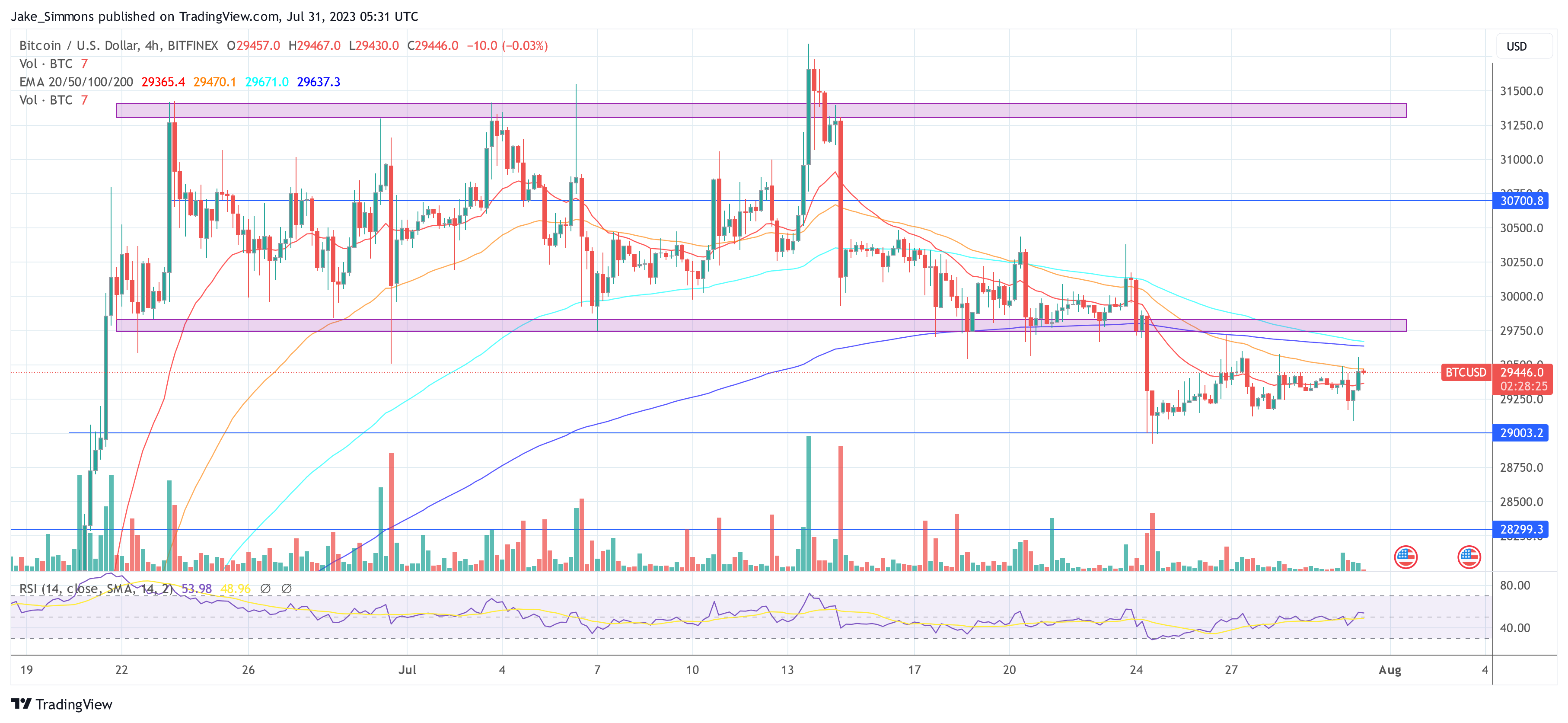In a shocking revelation, Brian Armstrong, the CEO of Coinbase, has disclosed that the U.S. Securities and Exchange Commission (SEC) had recommended the crypto exchange to halt trading in all cryptocurrencies, excluding Bitcoin, prior to launching a lawsuit against the company. This move is seen as an indication of the SEC’s intent to exert regulatory authority over a wider segment of the crypto market.
“They came back to us, and they said . . . we believe every asset other than Bitcoin is a security,” Armstrong told the Financial Times. “And, we said, well how are you coming to that conclusion, because that’s not our interpretation of the law. And they said, we’re not going to explain it to you, you need to delist every asset other than Bitcoin.”
Coinbase CEO Armstrong Speaks Out
The SEC’s case against Coinbase identified 13 cryptocurrencies on the platform as securities, asserting that by offering them to customers, the exchange fell under the regulator’s jurisdiction. However, the request to delist over 200 tokens, except Bitcoin, suggests that the SEC, under chair Gary Gensler, is pushing for wider authority over the crypto industry.
Armstrong expressed his concerns about the potential implications of such a move. “We really didn’t have a choice at that point, delisting every asset other than bitcoin, which by the way is not what the law says, would have essentially meant the end of the crypto industry in the US,” he said. “It kind of made it an easy choice . . . let’s go to court and find out what the court says.”
The SEC’s stance could have far-reaching consequences for the crypto industry in the U.S. If Coinbase had complied with the SEC’s directive, it could have set a precedent that would have left the majority of American crypto businesses operating outside the law unless they registered with the commission.
The SEC’s approach to crypto regulation has been a contentious issue, with the agency asserting that most cryptocurrencies, with the exception of Bitcoin, are securities. This interpretation has been adopted in its attempts to regulate the industry, as evidenced by its recommendation to Coinbase.
The SEC’s complaint against Coinbase, filed on June 6, charged the company with operating as an unregistered securities exchange, broker, and clearing agency. The SEC also accused Coinbase of failing to register the offer and sale of its crypto asset staking-as-a-service program.
The SEC’s actions against Coinbase and its implications for the broader crypto industry have sparked intense debate. “There are a bunch of American companies who have built business models on the assumption that these crypto tokens aren’t securities,” said Charley Cooper, former CFTC chief of staff. “If they’re told otherwise, many of them will have to stop operations immediately.”
In a pre-motion conference, Judge Katherine Polk Faila of the U.S. District Court for the Southern District of New York questioned the SEC’s ability to protect investors.
At press time, the Bitcoin price stood at $29,446.










